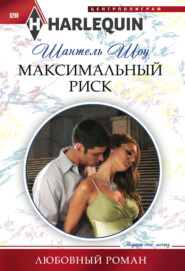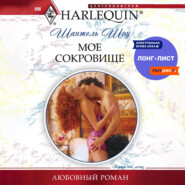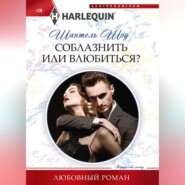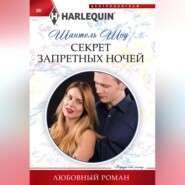По всем вопросам обращайтесь на: info@litportal.ru
(©) 2003-2024.
✖
Rags To Riches: Her Duty To Please: Nanny by Chance / The Nanny Who Saved Christmas / Behind the Castello Doors
Автор
Год написания книги
2019
Настройки чтения
Размер шрифта
Высота строк
Поля
The doctor drove through Maidenhead and on to Slough and then, to her surprise, instead of taking the ring road to the north of London, he drove to his house.
Araminta, who hadn’t seen Briskett leave the Ingrams’, was surprised to see him open the door to them.
‘Right on time,’ he observed. ‘Not been travelling over the limit, I hope, sir. You lads wait there while I see to Miss Pomfrey. There’s a couple of phone calls for you, Doc.’
He led Araminta to the cloakroom at the back of the hall. ‘You tidy yourself, miss; I’ll see to the boys. There’s coffee ready in the drawing room.’
Araminta, not in the least untidy, nonetheless did as she was bid. Briskett, for all his free and easy ways, was a gem. He would be a handy man in a crisis.
When she went back into the hall he was there, waiting to usher her into the drawing room. The doctor was already there, leaning over a sofa table with the boys, studying a map. He straightened up as she went in and offered her a chair and asked her to pour their coffee. There was milk for the boys as well as a plate of biscuits and a dish of sausage rolls, which Peter and Paul demolished.
They were excited now, their sadness at leaving their mother and father already fading before the prospect of going to bed on board the ferry. Presently the doctor excused himself with the plea that there were phone calls he must make and Araminta set to work to calm them down, something at which she was adept. By the time their uncle came back they were sitting quietly beside her, listening to her telling them a story.
He paused in the doorway. ‘I think it might be a good idea if you sat in the back with the boys in the car, Miss Pomfrey…’
‘Mintie,’ said Peter. ‘Uncle Marcus, she’s Mintie.’
‘Mintie,’ said the doctor gravely. ‘If Miss Pomfrey does not object?’
‘Not a bit,’ said Araminta cheerfully.
They left shortly after that, crossing London in the comparative calm of a Sunday evening, onto the A12, through Brentford, Chelmsford, Colchester and finally to Harwich. Long before they had reached the port the two boys were asleep, curled up against Araminta. She sat, rather warm and cramped, with an arm around each of them, watching the doctor driving. He was a good driver.
She reflected that he would be an interesting man to know. It was a pity that the opportunity to do that was improbable. She wondered why he wasn’t married and allowed her imagination to roam. A widower? A love affair which had gone wrong and left him with a broken heart and dedicated to his work? Engaged? The last was the most likely. She had a sudden urge to find out.
They were amongst the last to go on board, and the doctor with one small sleeping boy and a porter with the other led the way to their cabins.
Araminta was to share a cabin with the boys; it was roomy and comfortable and well furnished, with a shower room, and once her overnight bag and the boys’ luggage had been brought to her she lost no time in undressing them and popping them into their narrow beds. They roused a little, but once tucked up slept again. She unpacked her night things and wondered what she should do. Would the doctor mind if she rang for a pot of tea and a sandwich? It was almost midnight and she was hungry.
A tap on the door sent her to open it and find him outside.
‘A stewardess will keep an eye on the boys. Come and have a meal; it will give me the opportunity to outline your day’s work.’
She was only too glad to agree to that; she went with him to the restaurant and made a splendid supper while she listened to him quietly describing the days ahead.
‘I live in Utrecht. The house is in the centre of the city, but there are several parks close by and I have arranged for the boys to attend school in the mornings. You will be free then, but I must ask you to be with them during the rest of the day. You will know best how to keep them happy and entertained.
‘I have a housekeeper and a houseman who will do all they can to make life easy for you and them. When I am free I will have the boys with me. I am sure that you will want to do some sightseeing. I expect my sister has told you her wishes concerning their clothes and daily routine. I must warn you that they are as naughty as the average small boy…they are also devoted to each other.’
Araminta speared a morsel of grilled sole. ‘I’ll do the best I can to keep them happy and content, Dr van der Breugh. And I shall come to you if I have any problems. You will be away during the day? Working? Will I know where you are?’
‘Yes, I will always leave a phone number for you or a message with Bas. He speaks English of a sort, and is very efficient.’ He smiled at her kindly. ‘I’m sure everything will be most satisfactory, Miss Pomfrey. And now I expect you would like to go to your bed. You will be called in good time in the morning. We will see how the boys are then. If they’re too excited to eat breakfast we will stop on the way and have something, but there should be time for a meal before we go ashore. You can manage them and have them up and ready?’
Araminta assured him that she could. Several years in the convalescent home had made her quite sure about that. She thanked him for her dinner, wished him goodnight, and was surprised when he went back to her cabin with her and saw her into it.
Nice manners, thought Araminta, getting undressed as fast as she could, having a quick shower and jumping into her bed after a last look at the boys—deeply asleep.
The boys woke when the stewardess brought morning tea. They drank the milk in the milk jug and ate all the biscuits. Talking non-stop, they washed and cleaned their teeth and dressed after a fashion. Araminta was tying shoelaces and inspecting fingernails when there was a knock on the door and the doctor came in.
‘If anyone is hungry there’s plenty of time for breakfast,’ he observed. He looked at Araminta. ‘You all slept well?’
‘Like logs,’ she told him, ‘and we’re quite ready, with everything packed.’
‘Splendid. Come along, then.’ He sounded briskly cheerful and she wondered if he found this disruption in his ordered life irksome. If he did, he didn’t allow it to show. Breakfast was a cheerful meal, eaten without waste of time since they were nearing the Hoek of Holland and the boys wanted to see the ferry dock.
Disembarking took time, but finally they were away from the customs shed, threading their way through the town.
‘We’ll go straight home,’ said the doctor. He had the two boys with him again and spoke to Araminta over his shoulder. ‘Less than an hour’s drive.’ He picked up the car phone and spoke into it. ‘I’ve told them we are on our way.’
There was a great deal of traffic as they neared Rotterdam, where they drove through the long tunnel under the Maas. Once through it, the traffic was even heavier. But presently, as they reached the outskirts of the city and were once more on the motorway, it thinned, and Araminta was able to look about her.
The country was flat, and she had expected that, but it was charming all the same, with farms well away from the highway, small copses of trees already turning to autumn tints, green meadows separated by narrow canals, and cows and horses roaming freely. The motorway bypassed the villages and towns, but she caught tantalising glimpses of them from time to time and promised herself that if she should get any free time, she would explore away from the main roads.
As though he had read her thoughts, the doctor said over his shoulder, ‘This is dull, isn’t it? But it’s the quickest way home. Before you go back we must try and show you some of rural Holland. I think you might like it.’
She murmured her thanks. ‘It’s a very good road,’ she said politely, anxious not to sound disparaging.
‘All the motorways are good. Away from them it’s a different matter. But you will see for yourself.’
Presently he turned off into a narrow country road between water meadows. ‘We’re going to drive along the River Vecht. It is the long way round to Utrecht, but well worth it. It will give you a taste of rural Holland.’
He drove north, away from Utrecht, and then turned into another country road running beside a river lined with lovely old houses set in well-kept grounds.
‘The East Indies merchants built their houses here—there’s rather a splendid castle you’ll see presently on your right. There are a number in Utrecht province—most of them privately owned. You must find time to visit one of those open to the public before you go back to England.’
Apparently satisfied that he had given her enough to go on with, he began a lively conversation with the boys, leaving her to study her surroundings. They were certainly charming, but she had the feeling that he had offered the information in much the same manner as a dutiful and well mannered host would offer a drink to an unexpected and tiresome guest.
They were on the outskirts of Utrecht by now, and soon at its heart. Some magnificent buildings, she conceded, and a bewildering number of canals. She glimpsed several streets of shops, squares lined by tall, narrow houses with gabled roofs and brief views of what she supposed were parks.
The boys were talking now, nineteen to the dozen, and in Dutch. Well, of course, they would, reflected Araminta. They had a Dutch mother and uncle. They were both talking at once, interrupted from time to time by the doctor’s measured tones, but presently Paul shouted over his shoulder, ‘We’re here, Mintie. Do look, isn’t it splendid?’
She looked. They were in a narrow gracht, tree-lined, with houses on either side of the canal in all shapes and sizes: some of them crooked with age, all with a variety of gabled roofs. The car had stopped at the end of the gracht before a narrow red-brick house with double steps leading up to its solid door. She craned her neck to see its height—four storeys, each with three windows. The ground floor ones were large, but they got progressively smaller at each storey so that the top ones of all were tucked in between the curve of the gable.
The doctor got out, went around to allow the boys to join him and then opened her door. He said kindly, ‘I hope you haven’t found the journey too tiring?’
Araminta said, ‘Not in the least,’ and felt as elderly as his glance indicated. Probably she looked twice her age; her toilet on board had been sketchy…
The boys had run up the steps, talking excitedly to the man who had opened the door, and the doctor, gently urging her up the steps said, ‘This is Bas, who runs my home with his wife. As I said, he speaks English, and will do all he can to help you.’
She offered a hand and smiled at the elderly lined face with its thatch of grey hair. Bas shook hands and said gravely, ‘We welcome you, miss, and shall do our best to make you happy.’
Which was nice, she thought, and wished that the doctor had said something like that.
What he did say was rather absent-minded. ‘Yes, yes, Miss Pomfrey. Make yourself at home and ask Bas for anything you may need.’
Which she supposed was the next best thing to a welcome.
The hall they entered was long and narrow, with a great many doors on either side of it, and halfway along it there was a staircase, curving upwards between the panelled walls. As they reached a pair of magnificent mahogany doors someone came to meet them from the back of the house. It was a short, stout woman in a black dress and wearing a printed pinny over it. She had a round rosy face and grey hair screwed into a bun. Her eyes were very dark and as she reached them she gave Araminta a quick look.

















